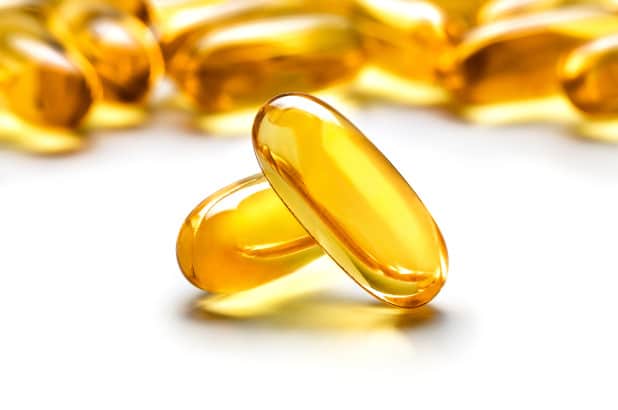Introduction

Fish oil is a rich source of omega-3 fatty acids, specifically of EPA and DHA. These omega-3 fatty acids are found in fish, but very few other foods, making it a prime candidate for supplementation. This NutriWiki article will cover the basics of how much you should take and whether or not it is beneficial for you.
Summary
You should take 3-5 grams of fish oil per day.
The evidence is sort of a mixed bag, but if you are not eating fish regularly, it might be worth supplementing with 5 grams of a high-quality fish oil
Discussion
Roughly 1.8g of DHA & 1.2g of EPA is an adequate amount of fish oil per day.[1][2]
DHA and EPA are both Omega 3 fatty acids and are considered long-chain fatty acids. In addition to these two, there is a third one that is relatively well known, it is a mostly plant-based omega-3 called alpha-linolenic acid (ALA). ALA is commonly found in walnuts & flaxseed oil. In order for ALA to be beneficial to the body, it must be converted into DHA & EPA. The body conversion rate is not very effective, ~5%, so supplementing directly with DHA & EPAs is more beneficial.[3]
There is some evidence that supplementing with fish oil might lower your risk of heart disease and heart attacks, but you have to take higher doses and high-quality fish oil [4].
References
- Sports Nutrition & Performance Enhancing Supplements (Antonio, 2013)
- Body Recomposition
- Can adults adequately convert alpha-linolenic acid (18:3n-3) to eicosapentaenoic acid (20:5n-3) and docosahexaenoic acid (22:6n-3)?
- Marine Omega‐3 Supplementation and Cardiovascular Disease: An Updated Meta‐Analysis of 13 Randomized Controlled Trials Involving 127 477 Participants
